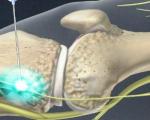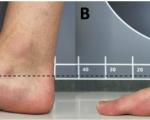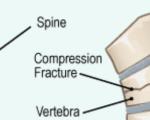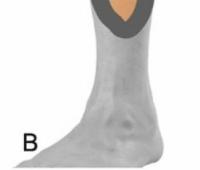Gordon Slater
Orthopaedic Surgeon, Private Practice, Level 2, Suite 2.01,376 New South Head Rd, Double Bay, NSW 2028; Australia
Profile link: https://orthopaedic-surgeon.com.au/
E-mail: Gordonjakll@gmail.com

Journal of Orthopaedics Study and Sports Medicine (Impact Factor: 0.4) is open access, peer-reviewed, an online journal committed to the dissemination of high-quality research related to the latest trends and advances in orthopedics, trauma, orthopedic rehabilitation, and related knowledge from all over the world.
The journal welcomes original research work, review articles, commentary, Case studies, and short communications related to different aspects of orthopedics including Arthroplasty, Arthroscopy, Sports Medicine, Spine, and Spinal deformities, Trauma, Pediatric orthopedics, limb reconstruction procedures, hand surgery, and orthopedic oncology. It delivers timely interpretations of key scientific developments in orthopedic surgery and rehabilitation and related areas of study. Known personalities with expertise and published studies in a specific field are invited to write reviews and editorials in our journal. Un-invited reviews will also be accepted if written by experts with publications in the field.
The journal scope comprehends the knowledge in research of the musculoskeletal system such as orthopedic oncology, osteoarthritis, orthopedic trauma, arthritis, musculoskeletal system, surgical sports medicine, spine surgery, pediatric orthopedics, laminectomy, orthopedic nursing, orthopedic implants, spine ailments, sports injuries, foot and ankle surgery, medicine for osteoporosis, studies associated with periacetabular osteotomy, degenerative diseases, infections, tumors, and congenital disorders, bone density, diseases associated with bone, such as bone cancer, bone marrow replacement or transplantation, injury, other musculoskeletal issues, orthopedic surgery, osteoporosis, and related treatment regimes, etc.
JOSSM welcomes direct submissions from authors: Attach your word file with e- mail and send it to orthopaedics@genesispub.org
Indexing and Abstracting:
© 2023 Genesis Scientific Publications | Open Access | Licensed under CC BY 4.0

Orthopaedic Surgeon, Private Practice, Level 2, Suite 2.01,376 New South Head Rd, Double Bay, NSW 2028; Australia
Profile link: https://orthopaedic-surgeon.com.au/
E-mail: Gordonjakll@gmail.com

Orthopaedic Surgeon,cirurgia reconstrutiva e preservadora do quadril, Porto Alegre, Rio Grande do Sul, Brazil
Profile link: https://marcoteloken.academia.edu/
E-mail: marco.teloken@santacasa.org.br

Director of Research and Development at Veritas Innovation, US

Orthopaedic Surgeon, Private Practice, Level 2, Suite 2.01,376 New South Head Rd, Double Bay, NSW 2028; Australia
Profile link: https://orthopaedic-surgeon.com.au/
E-mail: Gordonjakll@gmail.com

Orthoapaedics Surgeon at Apollo Hospitals, India

Professor and Head at Department of Orthopedics, All India Institute of Medical Sciences

Master in Work Management for the Quality of the Built Environment, Santa Úrsula University
Profile link: https://inovagov.enap.gov.br/quemsomos/integrantes?page=224
E-mail: tricia.bogossian@saude.rj.gov.br

Orthopaedics and Trauma, MVJ Medical College and Research Hospital, Bangalore, India
Profile link: https://studymrcs.org/director/dr-rakshith-chakravarthy-h-y/
E-mail: Rakshith.c.h.y@studymedic.org

Senior Consultant Orthopaedic Surgeon
Profile link: https://royalhealthrehab.ae/our-doctors/
E-mail: khaleddiab@hotmail.com

Dr. Pectus Private Clinic; Expert in Pectus & Rib Surgery; Pectus Excavatum, Carinatum & Arcuatum
Profile link: https://www.drhasanersoz.com/?lang=en
E-mail: hasan.ersoz@ikcu.edu.tr

Orthopedic Consultant
Arthoplasty Adult Lower Limb Reconstruction Toronto Uni
Sports Medicine & Arthroscopy Vienna Medial Uni
Certified Arthroplasty Robotic Surgeon USA
E-mail: Dr.hatim.alshareef@gmail.com

Recent dermatomal mapping of the ..

This case report describes the ..

Pain: An unpleasant sensory and ..

The success with long-term usage of ..

Chronic low back pain (CLBP) is among ..

Surgical repair (rotator cuff, labral ..

Introduction: Prolonged smartphone use, ..

Shoulder girdle injuries in ..

The comprehension of Key Performance ..

Case Information: Interdisciplinary ..


This systematic review and ..

One of the main reasons for revision ..

Protective postures caused by pain in ..

Objectives This study aims to ..
Genesis Scientific Publication is a self-governed as self-financed organization which aims not to receive any kind of external support from institutions/organization. Hence, the processing charges received from the authors and some academic/corporate sponsors are the sole means of the operation of manuscripts. And for maintenance, the fee is being received namely “Handling Fee”.
Thus, our group is like an open book which can be accessible by anyone who is passionate about journals with any chargeable fee i.e. it’s absolutely free for readers. However, authors are supposed to pay the handling fee which is required for processing of articles only and no other fee will be charged. And there is a provision made for authors i.e. the payment will only be done after the publication of the manuscript. It provides immediate open access to its content on the principle that making research freely available to the public supports a greater global exchange of knowledge and the charges cover the costs of turning a manuscript into a finished article, and also consists of promotion and distribution fee. Thus, this fee varies accordingly with the extent or type of colored effects, complex equations, extensive editing and extra elongation of no. of pages of the article etc.
Moreover, no one can change one's mind or authors as it keeps on changing so authors are responsible for paying 70% of the manuscript handling fee once the article is submitted and accepted in the journal.
The standard processing fee of journal for all type of articles is mentioned below:
| MANUSCRIPT TYPE | ARTICLE PROCESSING CHARGES | ||
| USD | EURO | GBP | |
| ALL ARTICLE TYPES | 700 | 600 | 520 |
Genesis Journals is committed to maintain the best level of sincerity within the content published in the journal.
Genesis Journals following International Committee of Medical Journal Editors principles on the way to affect acts of misconduct thereby committing to research allegations of misconduct to make sure the purity of research.
The research being reported in articles must be conducted in an ethical manner and must suits all relevant legislation. Authors must refrain from engaging in scientific misconduct.
Authors should present their results honestly and clearly without any fabrication, falsification, or any kind of inappropriate data manipulation. The authors should strive to explain their methods clearly and unambiguously must guarantee the originality of their material and their findings are often confirmed by others.
Authors should provide appropriate acknowledgement and authorship. All authors must have significantly contributed to the research. Authors must refrain from deliberately misrepresenting a scientist’s relationship with published work. Contributors who have made fewer substantial contributions to the research or to the publication are often acknowledged but shouldn’t be identified as authors.
Authors must tell the journal once they have an immediate or indirect conflict of interest with editors or members of the editorial board or International scientific committee.
Genesis Journals employ a double-blind review process. All contributions are going to be initially assessed by the editor. The editor is solely and independently liable for selecting, processing, and deciding which of the articles submitted to the journal meet the editorial goals and will thus be published. Each paper selected is shipped to two independent peer reviewers who are experts in their field and ready to assess the exact qualities of the work. The editor is liable for the final decision regarding whether the paper is accepted or rejected.
The decision to publish a paper will always be measured in accordance with its importance to researchers, practitioners, and potential readers. Editors should make unbiased and independent decision.
The editor’s action and decision are constrained by ethical and legal requirements like its own governing infringement of copyright and plagiarism.
Editors who make final decisions about manuscripts should withdraw from editorial decisions if they need conflicts of interest or relationships that pose potential problems concerning articles into account. The responsibility of the ultimate decision regarding publication are going to be attributed to an editor who doesn’t have any conflicts of interest.
The members of the editorial board ,chief editor, scientific committee, and reviewers shall withdraw in any case of conflict of interest concerning an author or authors, or the content of a manuscript to be evaluated.
The Journal will avoid all conflict of interest between authors, reviewers, and members of the editorial board and International scientific committee.
Each article submitted is the responsibility of one member of the editorial board or of the international scientific committee, who undertakes to have it evaluated by two peers who are experts in the field and who evaluate it anonymously.
Reviewed articles are treated confidentially by journal editorial board members and reviewers
In no case shall a journal and members of the editorial board encourage misconduct of any kind.
Members of the Journal editorial board shall attempt to prevent misconduct by informing authors and reviewers about the moral conduct required of them. Members of the editorial board, scientific committee, and reviewers are asked to remember of all kinds of misconduct to spot papers where research misconduct of any kind has or seems to possess occurred and affect the allegations accordingly.
Where appropriate, journal editors encourage authors to share the info that supports research publications. Editors encourage authors to state the supply of their data during a data statement attached to the submitted article. With the info statement, authors are often transparent about the info they utilized in the article.
All reviewers must know and keep in mind the editorial policy and publication ethics and malpractice statement.
Genesis Journals requires potential reviewers to have scientific expertise or significant work experience in a relevant field. They must have acquired recognized expertise by their peers and recently conducted research work. Potential reviewers should provide personal and professional information which is accurate, and which gives a fair representation of their expertise.
All reviewers must likewise withdraw if they feel their evaluation of the material will not be objective or they know they are unqualified to evaluate a manuscript, or if they understand themselves to be in a conflict of interest.
Reviewed articles are treated confidentially by reviewers and members of the editorial board and international scientific committee.
Reviewers should point out relevant published work which has not yet been cited in the reviewed material. Reviewers are asked to identify papers where research misconduct has or seems to have occurred and inform the editorial board, which will deal with each case accordingly.
The copyright on the original content and intellectual property shall remain with the authors. The authors grant, in exchange for publication in the Journal exclusive licensing of first publication, giving the Journal the right to produce and disseminate the contributions, whether collectively with other articles or individually, and in all media, forms known or to come.
The authors shall guarantee the originality of their material and shall not publish any text that would appear to contradict. Plagiarism and false or intentionally misleading declarations constitute behaviour that is at odds with the ethics of scientific publication.
No significant part of the article shall have been previously published either as an article or as a chapter or be under consideration for publication elsewhere.
If the authors intend to reproduce their article in other publications or for any other purpose and by any means, they must obtain the written authorization of the editorial board.
Articles are published in open access. There are no associated subscriptions or pay-per-view fees. All material is made available under the terms of the Creative Commons Attribution-Noncommercial-No Derivatives 4.0 International license (CC BY-NC-ND 4.0).
Journal’s content is archived in several copies by open edition, a publisher of online, free-access books and journals longer published, open edition maintains free access and will continue to make all archives available online.
The names of authors, reviewers, and collaborators along with the names of their organizations and institutional affiliations, which the Journal may record during its operations, shall remain confidential and shall not be used for any commercial or public ends beyond the signature of the articles published. However, this information may sometimes be required by government grant-giving bodies. The secrecy of the peer review selection shall be maintained when transmitting this information. A list of the names of authors, reviewers, and collaborators and the names of their organizations and institutional affiliations shall be sent with no explicit links between those named.
Genesis Journals may use these lists for its own purposes of request articles, collaboration, or other contributions, notably through occasional e-mails.
The authors retain the copyright of the content and grant the magazine the right to be the first to publish the article. This publication will be made under license, which allows others to share and reproduce the contents as long as the original authorship in the magazine is acknowledged and quoted.


Shoulder girdle injuries in professional athletes often lead to prolonged recovery and decreased ..

Introduction: Prolonged smartphone use, especially at bedtime, may lead to forward head posture and ..

Surgical repair (rotator cuff, labral pathology (SLAP, Bankart/anterior instability, posterior ..

Chronic low back pain (CLBP) is among the most incapacitating musculoskeletal disorders in the ..

The success with long-term usage of spinal surgery is very low and skewed and in most cases the ..

Pain: An unpleasant sensory and emotional experience associated with actual or potential tissue ..

This case report describes the successful healing of a high-grade partial tear of the supraspinatus ..

Recent dermatomal mapping of the anterior cutaneous branches of the femoral nerve by Siska ..

This systematic review and meta-analysis evaluate the influence of foot posture on the performance ..

Objectives This study aims to evaluate the effects of sequential bicompartmental ..

Protective postures caused by pain in patients with vertebral fractures, combined with associated ..

One of the main reasons for revision elbow arthroplasty, after infection and aseptic loosening, is ..

Concussions remain a significant concern in contact sports, with growing evidence linking proper ..


Case Information: Interdisciplinary rehabilitation gathered for a 26-year-old female suffering from ..


The comprehension of Key Performance Indicators (KPIs) holds significance for physiotherapists as ..

Authors present examples of locomotor system disorders – in feet, knees, hips, position of ..

Introduction The meniscus plays a pivotal role in the proper functioning of the knee joint. ..

Childhood obesity is considered one of the health problems that involves the entire family ..

Obesity is responsible for diseases that can cause temporary or permanent removal of workers from ..

Introduction: The reconstruction of substance loss in open fractures of the leg represents a ..

The 2019 corona virus (COVID-19) was a public health emergency of international concern and posed a ..

Introduction: The incision is very useful and easy for the direct lateral shoulder joint ..

In this article, the authors review the literature on current thinking in managing pin sites after ..

This is a case study of a 60-year old active practicing chiropractor with an multi year ..